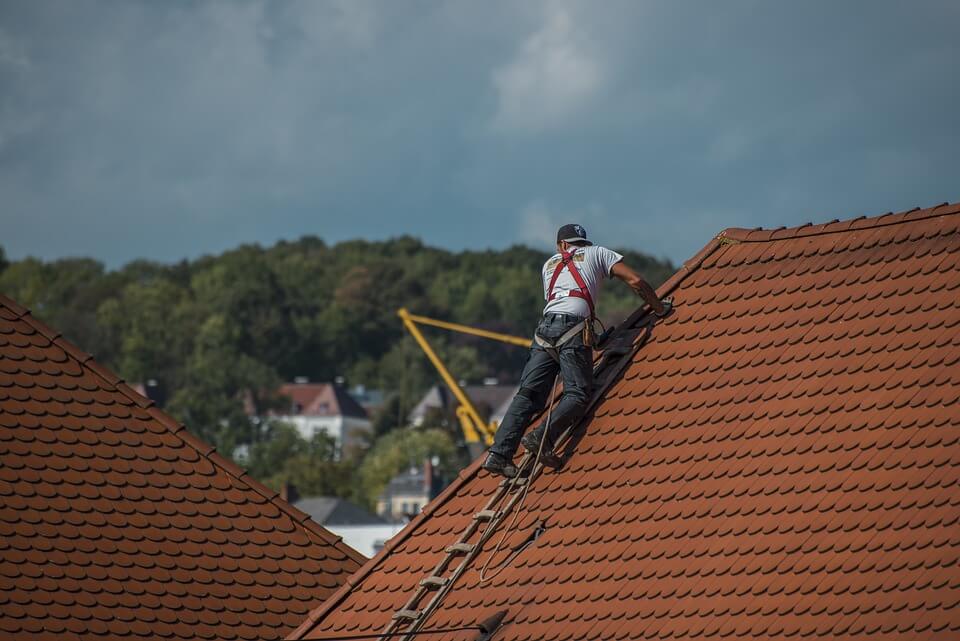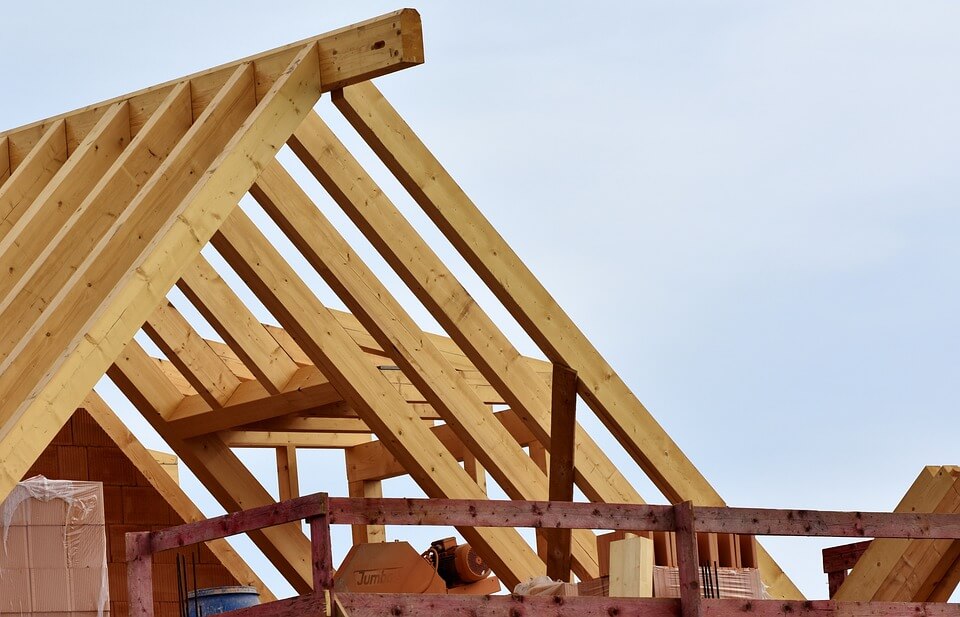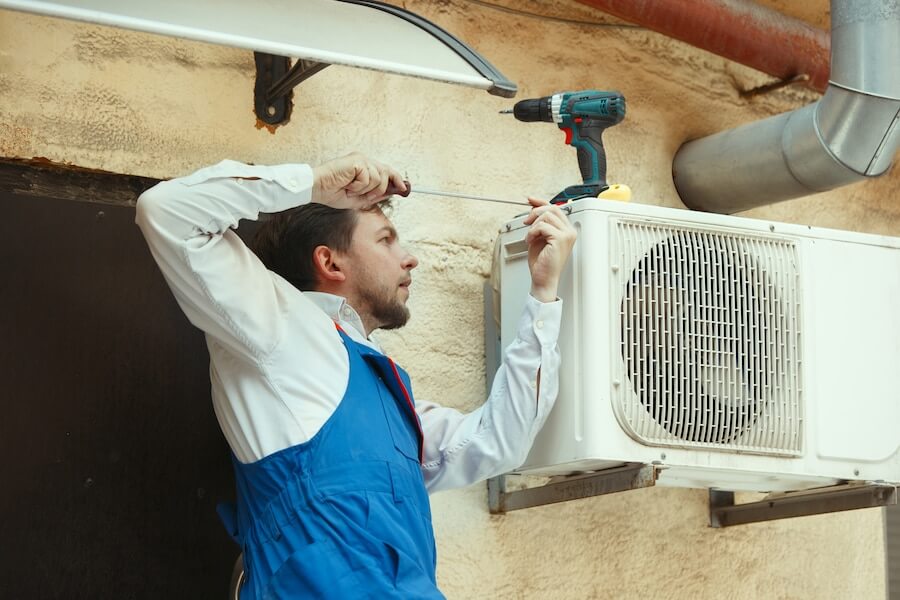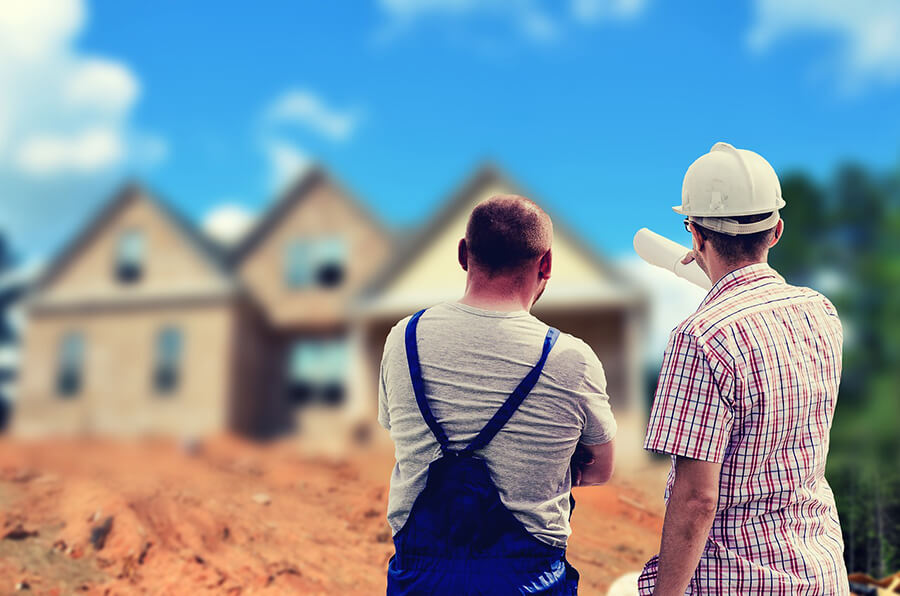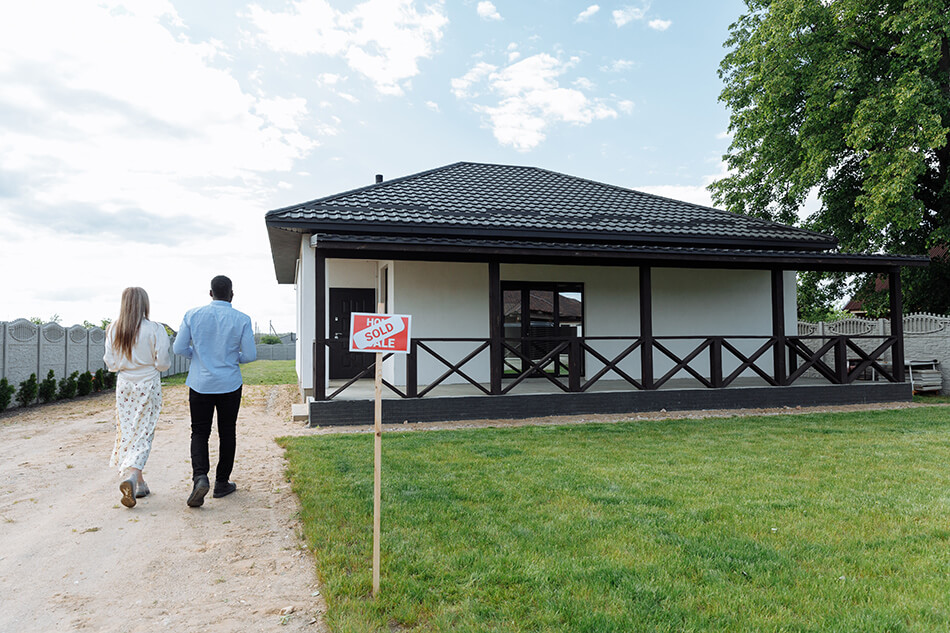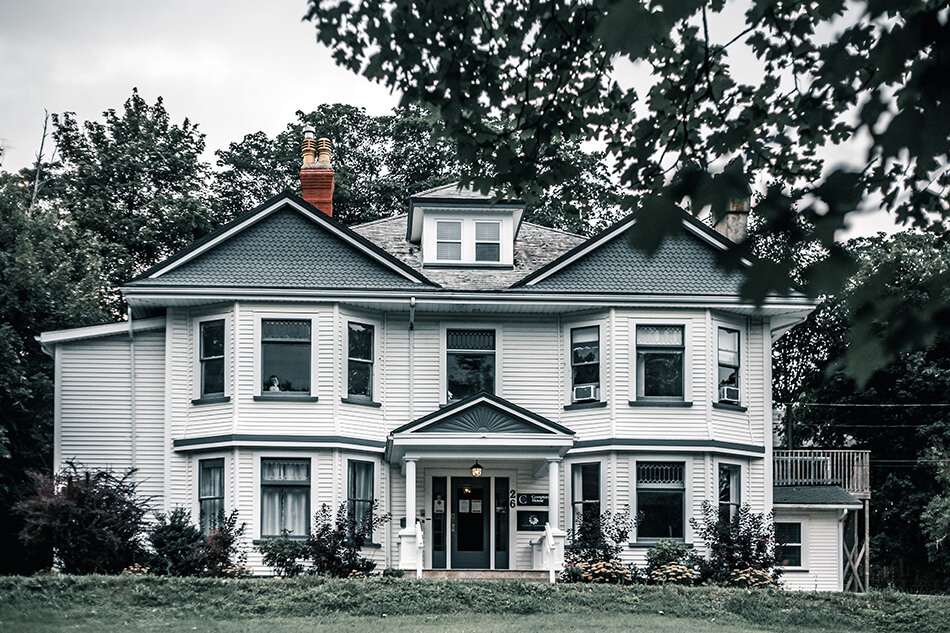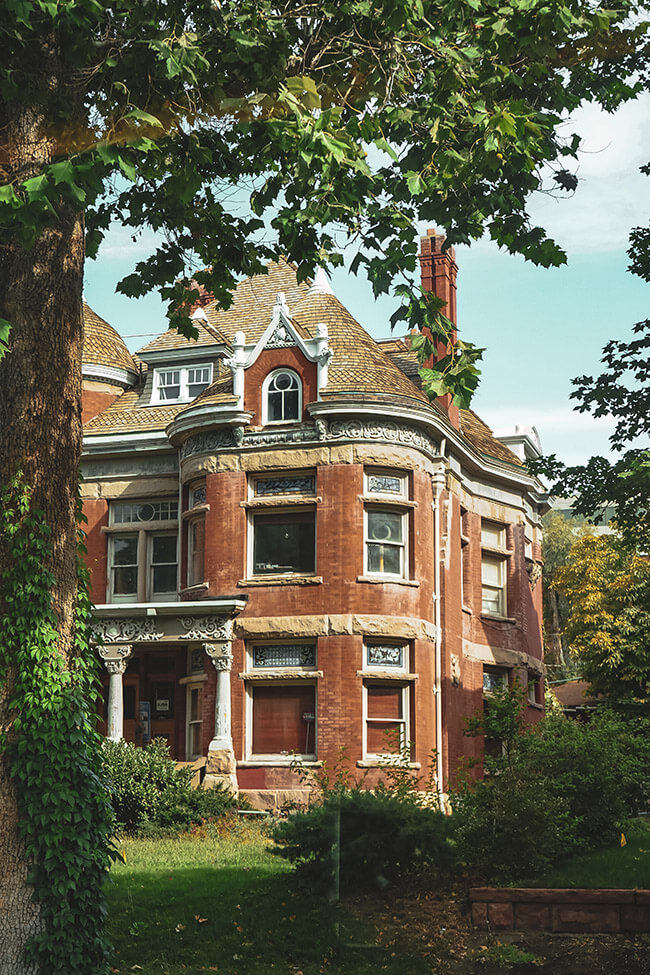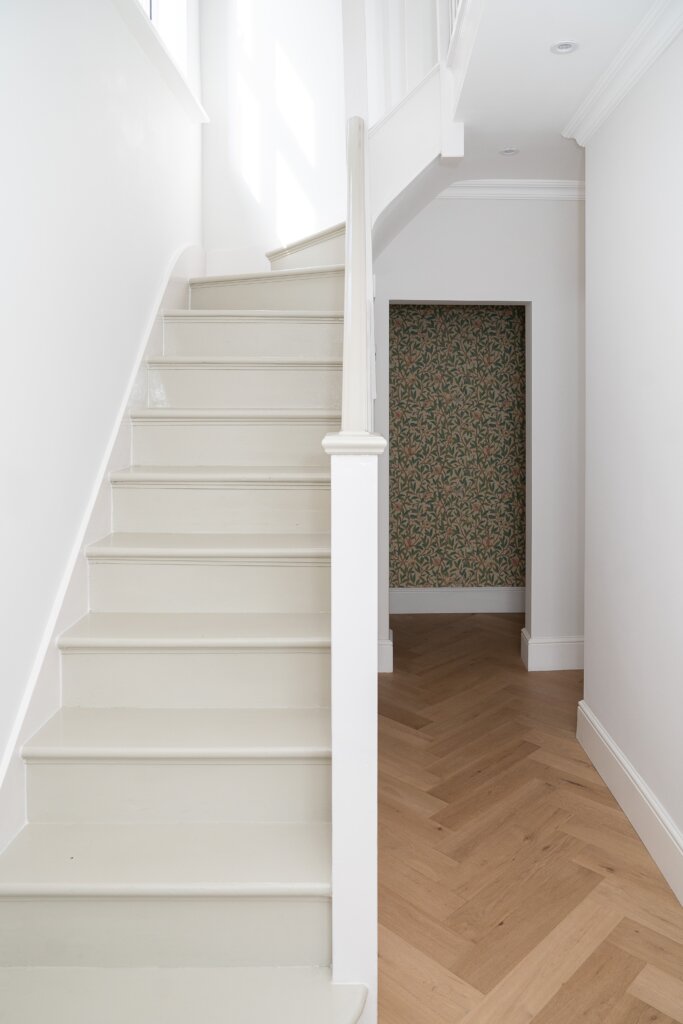9 Crucial Questions to Ask a Roofing Contractor Before Hiring Them
Posted on Tue, 18 Oct 2022 by Guest
A roofing system repair or replacement is an essential and costly investment. The roof contributes to the aesthetic appeal of your home, increasing your property’s value, not to mention protecting your home from external elements.
However, when a roofing repair or replacement project is not handled appropriately, your home will sustain extensive exterior and interior damage, and you could incur significant expenses in correcting the mistake. For this reason, you should leave all your roofing projects to a professional contractor instead of going DIY. An expert can ensure the job is done well.
Determining whether you are hiring the best roofer before signing the contract can be challenging. Read on for nine questions to ask a roofing contractor before hiring them for roof repair and replacement.
1. What kind of work do you do?
Your roofing system is the primary defense against external elements, including mold, mildew, and moisture. For this reason, you want to entrust repair and replacement to someone who specializes in roofing, not a general contractor. An expert in roofing has extensive knowledge and skills in repairing or installing new roofs, so you are guaranteed a quality job.
Be sure to avoid contractors with general knowledge about outdoor home improvements. Instead, opt for a company such as Landmark Roofing with an extended track record of repairing and installing new roofs, job after job.
2. Are you licensed?
Most states require contractors to have a license before handling any projects, so you should establish that the potential roofer is licensed before hiring. A permit shows the roofing system contractor has undergone the required training and performed well in the competency tests, so they qualify to take on any roofing project.
Be sure to request potential contractors to provide verification of their licensing requirements to enable you to stay clear of roofers who may be cutting corners. Hiring a contractor not eligible for a legal license could leave you with unsatisfactory results and make you vulnerable to legal suits for not complying with your local building codes.
3. Are you insured?
Roofing system repair and replacement are among the most dangerous home improvement projects. The contractors and their employees are susceptible to slips and falls and sustain severe injuries when handling your project. If the contractor does not have insurance coverage, you will likely assume the liability for medical expenses.
The contractor could also damage your property when handling the roofing system project. If they do not have insurance to cover the damage, you will have to fund the repairs or spend a lot of time and money on a fruitless lawsuit. For this reason, demand that potential roofing contractors provide proof of their liability and worker’s compensation insurance coverage.
4. Will you be handling the project?
Some roofing contractors maximize their profits through subcontracting. Subcontracting involves winning a contract and selling it to another roofing company at a discounted rate. This way, the roofer still gets proceeds from your project while handling another job. Be sure to ask a potential contractor whether they intend to pass your job to someone else before hiring. This will ensure the roofer you hire will be the one that shows up for the project.
5. Is your business local?
If you search for a roofing contractor online, you will likely get leads to professionals from across the globe. However, you should ensure you only hire a local contractor. This is because a roofing contractor within your region is familiar with your local building codes. This means they will handle the project in the confines of local rules and regulations, protecting you from legal implications. The local authority is also less likely to demand that you halt or demolish the roofing system project if you comply with your region’s building codes.
6. How long have you been in business?
You will likely establish how long a specific roofing contractor has been in business from their website. However, if you cannot determine this information by browsing through their site, do not hesitate to ask them during the interview. It is best to work with a contractor who has been in the industry for an extended period as they are more experienced.
However, it is worth noting that some contractors open their businesses, handle a few projects and stop operating for a couple of years because they cannot sustain the business or due to lawsuits. Hiring such a roofing contractor could mean you will have no recourse should you discover faulty installation or your roof leaks. For this reason, partner with an established company with a proven track record to ensure upfront quality and continued support.
7. Can you provide some references and reviews?
An effective way to establish you are working with a credible roofing contractor is by checking reviews and testimonials from previous clients. Reviews and testimonials show customers’ experiences working with a specific contractor, enabling you to make an informed decision. You can find online reviews on Better Business Bureau or Google.
Consider asking a potential roofer for references if you prefer a physical roof inspection. A physical inspection can help you decide whether or not a specific contractor’s quality of work suits your needs. Be wary of contractors who do not provide references.
8. How will you protect my property?
Apart from establishing your contractor has liability insurance coverage, you should determine other measures they intend to take to protect your property. Before signing the contract, ensure you understand how the contractor will protect your landscape and driveway from roofing refuse and vehicles, shield gutters from ladders, and clean up nails and material waste. You should ensure you will not have to worry about more property damage at the end of the roofing system project.
9. How much will my roofing system project cost?
Before signing the contract, you should establish your project’s cost. Roofing contractors differ in price ranges, so you need to partner with a professional that fits your budget. Be sure to ask for a free estimate of your project, then compare and contrast pricing to settle for an affordable roofer.
Endnote
Hiring the right contractor is the first step to investing in a high-quality roof for your home. Before hiring, conduct in-depth research on the roofing companies within your state and ask the above questions when interviewing potential contractors to get the right level of service.
How to Choose Between Repairing and Replacing Your AC
Posted on Wed, 28 Sep 2022 by Guest
There are a few things to take into consideration when choosing between an air conditioner repair or replacement. These factors include the unit’s age, its efficiency and functionality, and the cost of any necessary repairs, among others.
If your air conditioner goes down on the hottest days of the year, keeping these aspects in mind will make creating a less frantic plan of action easier. An older machine may function properly for a few more years with just a little repair and routine maintenance.
A new, high-quality air conditioner requires a significant investment. It usually makes more sense to have it fixed unless your old unit is underperforming and you can’t fix it without incurring substantial expenses. When determining whether to fix or replace your current air conditioner, some factors to consider are:
1. The Ductwork’s Condition
Even with the most energy-efficient equipment, you would not feel sufficiently cool on hot days. This is because the central air system’s mechanical components are just one component. Your technician should perform a duct-leakage test by closing the vents and calculating how much air leaves the system before determining whether to replace or repair your blower and condenser units.
If the ducts are ineffective, he can find and fill the gaps for, generally, $25 to $35 per vent (or, in business lingo, per “run”) or, for about $100 per run, completely replace the ducting with new, insulated tubing. Your specialist could recommend replacing the mechanicals in addition to making duct modifications, or they might advise fixing just one or the other.
2. The Efficiency of Your Current Unit
Your energy costs will be a pain when your air conditioner is outdated or in poor condition. While professional maintenance and cleaning can be helpful, some indicators of aging, such as efficiency, cannot be remedied without a complete replacement.
A Seasonal Energy Efficiency Ratio, or SEER Rating, is a term used to describe how effective an air conditioner is. It involves figuring out how much heat is evacuated in relation to how much energy the system uses.
Consider it similar to a car’s miles per gallon. The mileage improves with increased efficiency.
SEER ratings begin at 8 and increase from there. The most effective whole-home air conditioners typically operate in the 20 to 25 SEER range, although there is no limit.
This implies that in comparison to a new cooling system, your present system is more likely to be inefficient the older it is. Your utility costs and electricity use will be directly impacted by this. It’s important to note that efficiency consists of more than SEER. Your system’s efficiency is also influenced by the right amount of refrigerant, the regularity of expert maintenance, and the state of the electrical components.
3. The AC Unit’s Age
Your air conditioner’s age should be the first factor you take into account when considering whether to replace it or repair it. In general, older AC units should be replaced with more recent, more efficient versions. Older units sometimes operate less effectively than newer versions and may have lower Seasonal Energy Efficiency Ratios (SEER). Your air conditioner could be costing you more money if it was made in 2006 or earlier and does not meet basic government standards.
4. The Cost of AC Repairs
The cost of the required repair is one of the main factors when selecting between an AC repair and an AC replacement. There’s no reason to discard the entire item if the remedy is quick, easy, and reasonably priced. Over the course of your unit’s life, minor repairs may be required occasionally. On the other hand, a costly repair can force you to spend the amount of a new system without receiving the benefits. In these circumstances, it is crucial to consult a professional on the projected long-term costs for your unit.
A costlier repair could be justified if your equipment comes from a trustworthy brand and might add another five years to its lifespan. However, even minor service visits might start to pile up if your unit is expected to have several repairs over the course of the next five years. When estimating replacement and repair prices, it is useful to think about your potential financing options, coupons, and rebates.
5. The Length of Time You Intend to Stay at Your House
Your choice to fix or replace your HVAC system may be influenced by how long you intend to remain at your home:
- You intend to sell your house: If you intend to sell your house soon, the decision between repair and replacement becomes a little more challenging. A modern HVAC system has the potential to increase the market appeal and retail value of your house. You may also consider using PACE financing, which would have the appearance of being brand-new and include the cost of your system in your property taxes.
These payments would be sent to the next homeowner if you sold your house. Instead of spending money on a complete HVAC replacement, you can decide to make a little repair to get by instead, if you want to sell your house as-is for a lower price. - You intend to remain at your residence for a long time: If you possess an older unit and want to live in your house for a long time, the question becomes when you will replace it rather than if you will need to replace it. Your HVAC specialist can evaluate your system and assist you in determining if a replacement or repair is the best option for you, even though it’s still a crucial decision.
6. The Extent of Damage to Your Air Conditioning Unit
It’s crucial to first have a professional assess the severity of the problem before determining whether you should have your AC unit fixed or replaced. Repairing structural deterioration, such as rust and corrosion, and permanent harm to key system components might not be worth the cost. Similar to an engine replacement, these significant fixes would still end up leaving you with a piece of outdated equipment that may develop new issues in the future.
Endnote
When your air conditioner is more than eight years old, repairs are usually not worth the money unless there is a straightforward issue, such as a fan belt that is worn out or debris obstructing the condenser unit.
Ask your contractor to evaluate not just the state of your current equipment but, additionally, the ducts that distribute cold air and the general condition of the insulation within your home in order to best balance your option to repair or replace. The system’s efficacy may be increased by enhancing those factors just as much, or even more, than by adding additional equipment.
12 Questions to Ask a Potential Home Builder
Posted on Fri, 19 Aug 2022 by Guest
Selecting the right builder for your home is one of the most important decisions you will ever have to make. For a stress-free and fulfilling building experience, it is vital to know what to ask a potential home builder before you make a hiring decision. To help you out, here are 12 questions to ask a potential home builder.
1. How long have you been in business?
Since you need to find a highly skilled and competent builder, an important question is how long one has been offering their services. A company with a vast experience like Excel Builders that has been handling constructions for more than 25 years is better placed to offer you better services than a company marking their first year in business.
Typically, more years of experience translates to handling more projects and better knowledge about your area, the local building codes, zoning regulations, sewer & drainage lines, and general landscape, among other crucial details.
2. Are you licensed and insured?
A reputable home builder worth your time and investment should be fully licensed and insured. This will save you from problems with the local and state authorities while ensuring you are not at risk in case anything goes wrong during the construction.
3. Do you have warranty packages?
It is good to have the peace of mind that the home builder you hire will stand behind their work. This can only be guaranteed with a warranty package covering the workmanship and structural integrity. Remember to ask how long the warranty lasts, what it covers, and how they will handle issues you raise.
4. Have you built homes of this style?
Since your dream is to have an attractive and livable family home, it is best to opt for a home builder who has experience or specializes in the style you want. The best way to ascertain this is by going through the builder’s portfolio and taking a tour of a home they have recently built for a customer with similar needs.
5. How do you guarantee quality constructions?
A home builder’s promise of quality construction should be backed with an assurance of how they will make this possible. Reputable builders will have a quality assurance checklist that is ascertained through multi-point inspections at different stages of the construction.
Remember, whether your goal is to have the most colorful townhouse or a charming country house, the construction quality is determined by what goes on behind the walls, not aesthetics.
6. What differentiates you from other home builders?
An easy way to determine the builder’s personality and style of work is by inquiring about what makes them unique. Building a custom home comes with challenges, and you need the assurance that the team you’ll be working with has what it takes to manage this process efficiently and deliver quality.
7. What are the defining features of your homes?
It is important to know the features your house will have that few other builders can offer, and this is best done by focusing on the strengths of your builder. Whether it is the fact that they focus on building energy-efficient homes, putting up stronger foundations, or excellent finishes, you need insights on what to expect.
8. How will you determine the cost of building my home?
Requesting a construction cost breakdown is the best way to determine how best your allotted budget suits the project. You will also get to determine factors such as how much the labor charges compare to material costs, what percentage of the budget is set, and how much is an estimate.
This way, you can be confident that your builder will not recklessly run you over your budget. You will also know what can and will be executed once you hire the builder. Pay extra attention to whether they offer services such as landscaping and if it is pre-included in the budget.
9. How often can I expect updates, and will I have a contact person?
Communication is vital during a home-building process as this is the only way to ensure everything is running according to plan. A home builder who values your satisfaction will prioritize providing timely and detailed updates on the construction progress. For smoother two-way communication, you need to have a contact person you can always reach out to whenever you have any inquiries.
10. What is the estimated time for my home’s completion?
While so many factors will determine how long it takes to build your home, it is ideal to know what your timeline will look like. Keep in mind that this time frame might be longer than anticipated as managing constructions is complicated and can severely be impacted by uncontrollable external factors such as extreme weather conditions.
11. How many of your builds finish on time and on budget?
This question goes hand in hand with the estimated timeline for your home’s completion and helps you determine how committed the home builder is to their projects. Getting a sense of how often a builder gets to finish a project on time and on budget will give you the confidence to trust them with your construction. Beware of promises that are too good to be true, as no home builder can guarantee 100% project completion within a short timeframe.
12. Do you have references I can talk to?
Talking to a potential home builder before making up your mind is never enough. For a clear picture of the level of competence to expect, talk to past customers for an in-depth homeowner’s perspective. Beyond the general questions such as whether the homeowner was satisfied with the construction, make inquiries that will prompt detailed answers. These can include:
- What level of assistance was provided when selecting home finishes?
- Did you request any changes or home upgrades during the construction, and how were your requests handled?
- How often did you have access to the construction site during the building process?
- Was the project completed on budget?
Endnote
Deciding to build a custom home comes with the mandate of choosing the right builder, and by knowing the right questions to ask, you can attain the partnership you need for your dream home to come to life.
4 Factors to Consider When Buying a Home
Posted on Fri, 12 Aug 2022 by Guest
Buying a home is one of the most exciting life accomplishments but can be quite an overwhelming and time-consuming process, especially if you are a first-time homebuyer. Once you have decided to buy a home, you need to consider various factors that will impact your current and future lifestyle and financial state. After all, you want to find a home that will keep you and your family comfortable and happy for the long term. Here are four essential factors to consider when buying a home.
1. Location of the home
Location is perhaps the most critical factor to consider when buying a home. You want a location that allows easy access to the places you frequent the most, such as the place of work, recreation center, place of worship, school or shopping center. Depending on your preference, you may want to be on the main road or a quieter area with many cul-de-sacs or side roads. Considering these things before you buy a home can help you avoid the hassles of getting out or into the neighborhood.
2. Type and ideal home style
The type of home you intend to purchase will depend on your needs and preferences. There are various options to choose from, including condos, single homes, bungalows, apartments, and mansions.
Your choice of home will also depend on your preferred lifestyle. Condos make an excellent choice for those who want to have their own home while still having access to hotel-style amenities. On the other hand, single homes are for people who want the freedom to customize a home to their specifications.
Once you decide on the type of home you want, the next thing is to consider the house design. You can search for different home designs and make a note of which can improve the aesthetic appeal of your house. The key factors that determine the design of a home include material used, color, size of the house, and landscaping.
3. Payments plan
Buying a home needs a huge sum of money, and only a few can afford to pay the price upfront. Therefore, you should look for the different payment plans available and secure your finances. If you will use the mortgage to buy your home, discuss different repayment plans with your bank or lender. Be sure to find a reliable financial partner who will hold your hand throughout the home buying process.
4. Age of the home
Age makes a significant impact when buying a property, especially a home you have always been dreaming of. Older homes can have a more appealing character, but they may require more maintenance work in the long term.
If you want to buy an older home, ensure you have the time, budget, and inclination to enjoy managing repair and renovation projects. However, this can be irrelevant if you are only interested in a newly-built home, but that doesn’t mean you should overlook the condition of any property you will be viewing. That’s why it’s vital to inspect a home thoroughly before you buy it to save yourself from hassle afterward.
Endnote
Everyone deserves to find their dream home, which is possible with the proper research. Consider these essential factors as you and your family begin the home buying process. These factors will help you focus on the qualities a good home must have in order to meet your needs and preferences.
Preparing to Lay Wood Flooring: 4 Tips
Posted on Tue, 5 Jul 2022 by Guest
Preparing to lay wood flooring is an extremely important part of the process of installing new floors. There is so much to consider including your dust control systems, the preparation of your subfloor and how much flooring you need to actually buy.
-
- Work out how much flooring you need
One of the first things you will need to do if you are planning on laying wood flooring is to work out how much flooring you will need to cover the whole room. Use a laminate flooring calculator to work out how much of your wood floor you will need to purchase to fill up your space.
-
- Remove your doors
Before you begin the process of preparing to lay your floors remove the doors to the room you are working on. Take the doors off their hinges but try to leave the hinges in place so that you can easily reattach the door once the floors are finished and ready. Keep the doors stored in a separate room with a blanket to prevent scratching or any other damage, and remember to keep all the pins from your hinges stored safely in a plastic bag or box so that they don’t get lost.
-
- Supplement the Dust Control System
Although most wood floor installers will make sure to implement a proper dust control system, it is recommended that you do anything you can to supplement these efforts. Seal off any rooms that won’t be sanded with plastic sheets and painter’s tape to avoid any excess dust from reaching inside the other rooms of your home, and install plastic sheeting around the perimeters of the worksite.
Make sure there is enough space clear for the workers to do their jobs easily, and tape some excess plastic over heating ducts and any other openings in your home to make sure that dust does not circulate your home through the ducts.
-
- Prepare the Subfloor
It is important to note that if you are bringing professionals in to install your wooden floors it is unlikely that they will spend much if any time working on your subfloor unless you have negotiated this already as a part of the installation price. Because of this, you may want to do some work to eliminate any imperfections such as dips in your flooring and give the workers a perfectly flat and well-secured foundation on which to install your new wooden flooring. If your home’s subfloor is particularly bad, you may choose to completely remove the old flooring and lay a completely new subfloor. If you don’t want to go this far, you may choose to install a thin underlay made of plywood to smooth over the surface.
Overall, there are many things that you can do to help to prepare a room for laying wood flooring, it is all about having a smooth and well-finished subfloor as well as a proper dust control system. Make sure also that you have enough material to cover the whole floor so you aren’t left with an incomplete room.
